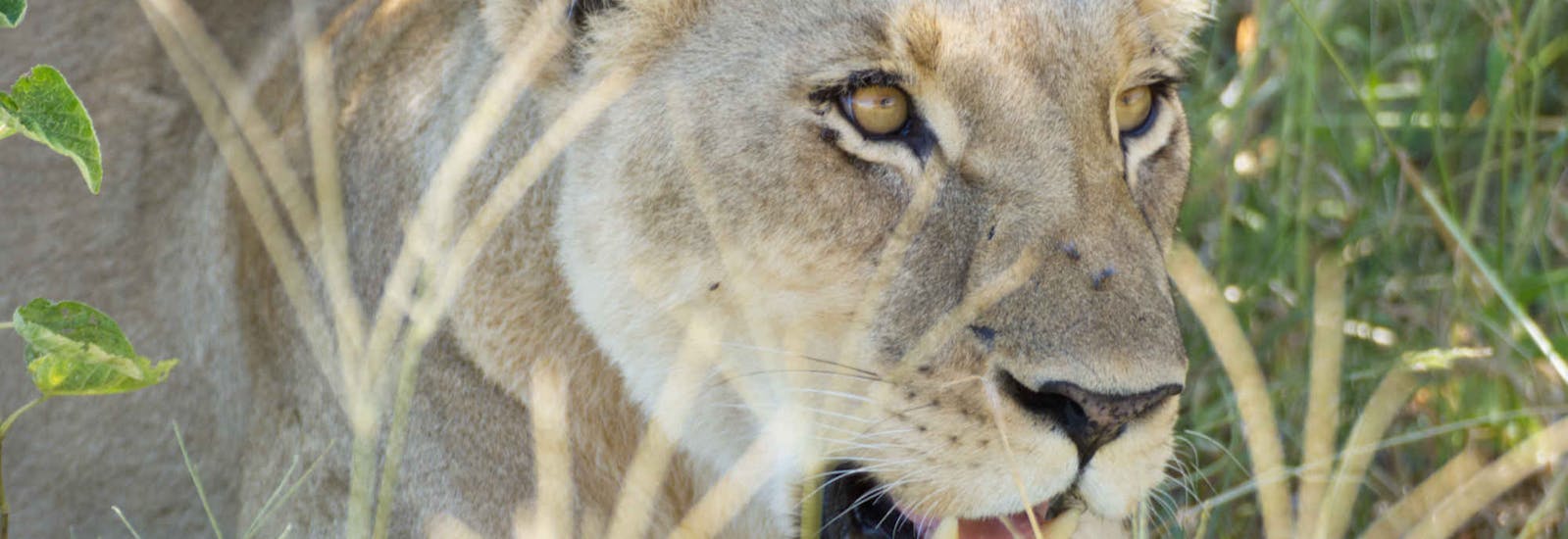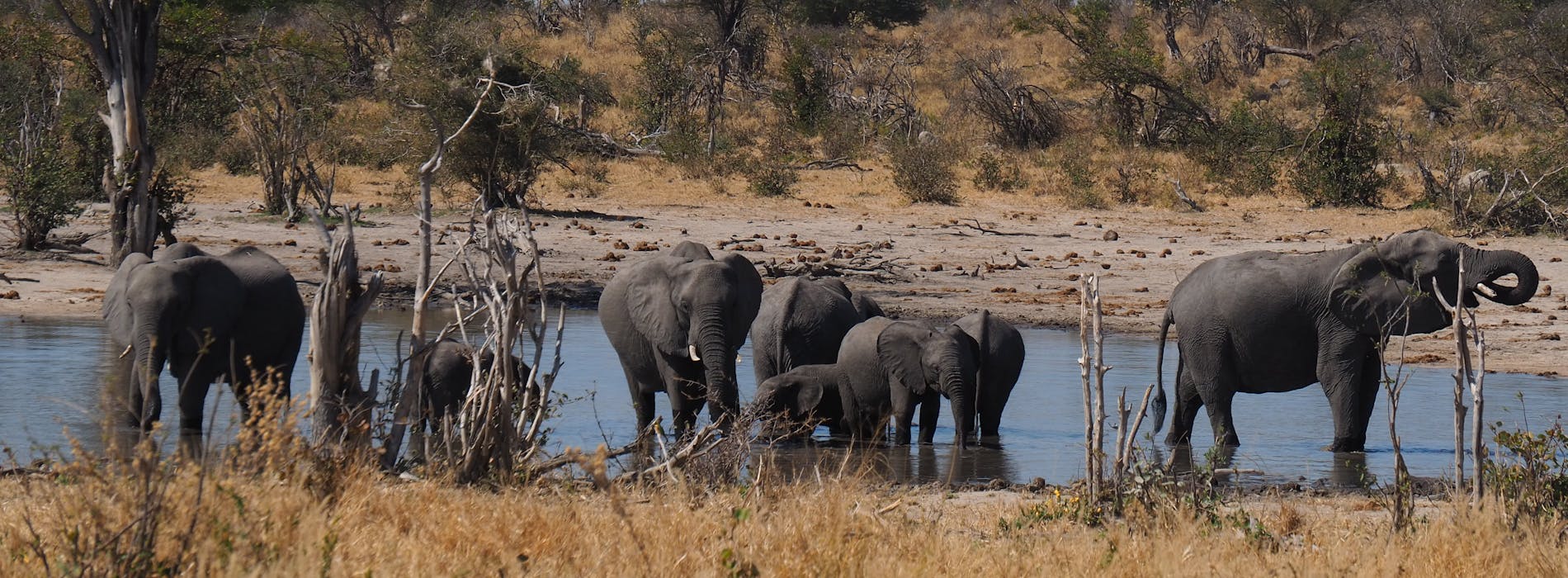
The Tuli experience - words of wisdom from a past volunteer
If you have never been to Africa, Tuli will guarantee you the experience of a lifetime. Having left Heathrow airport with its extremely busy and crowded terminals — terminal 1 for South-African Airways. On board a packed Airbus, Johannesburg airport meets you after a long night flight with its huge open spaces, newly built modern halls and state-of-the-art handling of passengers and luggage.
The day-long trip from Johannesburg to Botswana’s border post gives you the time to soak up the vastness and the different but very pleasant climate of South Africa’s central and northern territories. If you have any questions on practical or other matters concerning your stay, quite a few of them will be answered by the driver of your van. If you need any help, “ask and you shall be given”.
Since border crossing into Botswana is not allowed after dark, you usually spend the night at a crocodile farm near the border where the owners, very hospitable, wine and dine you that same evening and provide a super breakfast the next morning. Then it is off to the border where you cross the Limpopo River by cable cart or by 4×4 into Botswana. You are met by someone from the “Tuli Wilderness” and then it’s off to Stuarts’ home and office, GHQ of the Tuli conservation area. Having brushed off the first layer of dust — Tuli means “dust” in Setswana-, a warm welcome from rangers Marla, Andrew, and Stuart, together with the volunteers who are already there, is awaiting you.
After your first real 4×4 drive in the open “Landy”, up and down “Horrible Hill” and through the Mopani bush, Mohave camp, your home for the next few weeks, appears in front of you. Kate and Chris, the local couple taking care of the camp, are there to greet you. One of the rangers takes you on a guided tour of the camp’s accommodations and facilities and gives you your first security briefing.
Do pay attention to that briefing because your security at camp and in the bush depends on it. There are no fences or walls in Mohave camp so you live by the rules of nature and the rangers. Sticking to the advice you have been given, you are perfectly safe, even when you feel a hyena or a leopard sniffing at your ear at night…
During the next weeks, you will have the experience of a lifetime. A lot of what you have seen on BBC, National Geographic, Discovery and Animal Planet is going to be there “real-time” plus the smells, the wind, the African sun, the special, almost alien light just after sunset and real silence with capital S at certain times of the day.
There will be game drives and game counts during the day and night. The records you take from these drives will be valuable for a number of ongoing studies of the conservation area and its fauna. The world of tracking will descend upon you and provide you with a truckload of knowledge.
Elephants will stroll by only yards from where you are sitting awestruck in the Landy. Gracious and beautiful raptors will fly over you and if the bush gods are favourable, you will get to see the big cats from very close by. You will sleep out with your colleagues, all gathered around a big Mopani campfire and closely watched by the brown hyenas on Leopard Koppies. You and your group will drive out to set up hidden sensor cameras which take day and night shots of the animals “on tour”.
I could go on for dozens of pages, turning all my Tuli experiences loose upon you but I am not going to spoil the surprise. You’ll have to go to Tuli and find out yourselves.
Perhaps just a few practical tips on clothes and equipment.
- Don’t forget your bio-laundry soap for washing underwear and socks.
- Strong heavy-duty cotton trousers and shorts in subdued colors are best; they need to be able to withstand rough handling.
- If you are going during the dry season, bring a warm sweater and a fleece jacket, preferably a wind-stopper. It gets very chilly and windy in an open Land Rover at night. Don’t forget a warm cap, or hat and gloves. (50% of the heat your body loses, escapes from your head).
- Tough boots are a must. You won’t believe what rocks, thorns and sand do to those high street pumps so don’t go for the fancy stuff. It doesn’t have to be trendy and expensive but comfortable and resistant. Lions, leopards and hyenas have totally different views on fashion…
- Sunglasses will protect your eyes from the African sun which is strong, even in winter. Again, bring a tough pair that can stand abuse and a strong case to protect them when you are not wearing them.
- A day backpack to keep all your stuff in when you are on the move, by vehicle or on foot is extremely useful. It has to be comfortable to wear, not too big, made of strong fabric and dustproof. Don’t get one with too many side and exterior pockets. You have to be able to close everything really well in order to keep out the “creepies and crawlies” and the dust.
- A first aid kit + antihistamines, antibiotic eye drops and painkillers might come in handy.
- A big water bottle, container or hydration pack is vital.
- You can’t do without a box with the odd bits and pieces to do emergency repairs (sewing kit, super glue, duct tape, rope, …)
- If you have a multi-tool, bring it. If not, consider investing a bit of money in a good one. You can use them for a million different things and especially in Africa, you will have them on you when the need arises. There aren’t all that many tool shops in the Tuli area…
- Binoculars are one of the great lifetime investments. Get a good pair (e.g. 8 x 42) and you’ll enjoy nature twice as much for many years to come.
- Unless you are a well-equipped amateur or professional photographer, a good compact camera is the best option for your shots of unforgettable images and action. Quite a few of the latest, full-auto, digital ones are very good value for money and they fit in your shirt or jacket pocket. Don’t forget a strong protection cover or case to keep the dust out.
A prepared Tuli volunteer is worth four!
Conrad Goossens

